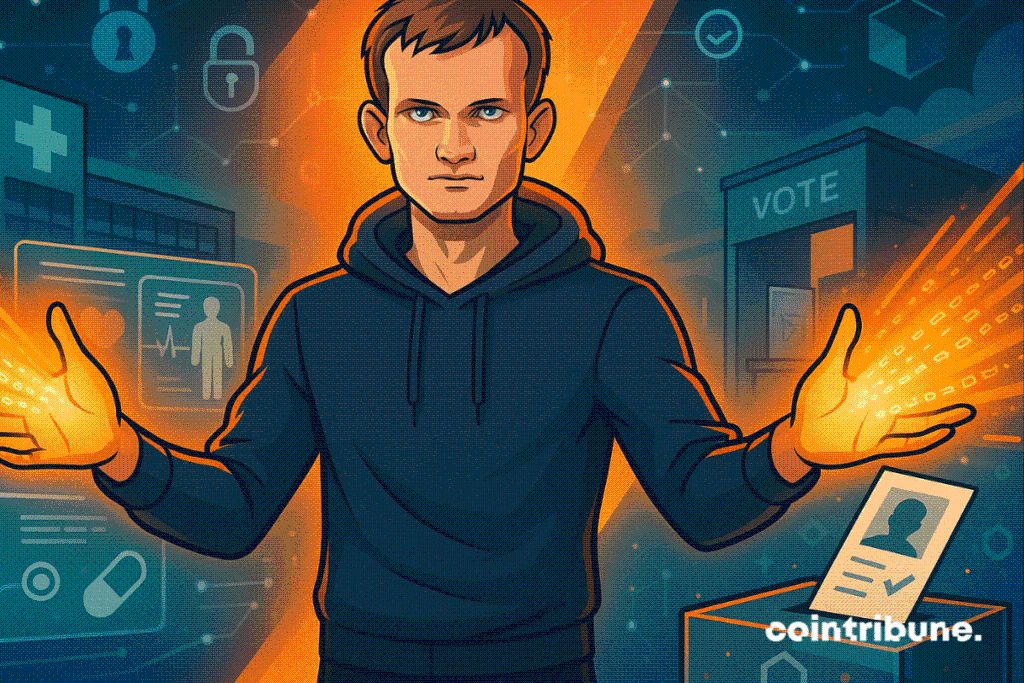From Healthcare to Voting: Vitalik Buterin on Open-Source and Verifiable Technology
The internet has become deeply woven into modern life, shaping how people work, communicate, and access vital services. As society places more trust in technology, Ethereum co-founder Vitalik Buterin warns that many critical systems are being built in closed, centralised ways. When trust is compromised by hidden flaws or vulnerabilities, people may fall back on personal connections or familiar institutions. Buterin emphasises that sectors such as healthcare, finance, and governance should adopt open-source and verifiable models, with verification accessible not just to experts but to everyday users.

In Brief
- Vitalik Buterin warns that many systems in healthcare finance and governance are being built in closed, centralised ways.
- He emphasizes the need for open verifiable systems that people can trust to operate safely and fairly.
- Privacy and careful focus on critical systems are essential to ensure the technology society relies on remains secure and trustworthy.
Building Trust in Healthcare Technology
Healthcare is one of the areas where the risks are most visible. Buterin points out that proprietary health and biological tracking systems put corporations in control of valuable personal data. This control can limit innovation and allow monopolistic practices to take hold.
He also warns of dangers that come from insecure systems. Sensitive information could be used for blackmail or lead to unfair pricing in insurance. Location data might expose individuals to targeted threats, while future technologies such as brain–computer interfaces could face the risk of malicious attacks .
“if this kind of personal health data is insecure, someone who hacks it can blackmail you over any health issues, optimize pricing of insurance and healthcare products to extract value from you, and if the data includes location tracking they know where to wait for you to kidnap you.”
Vitalik Buterin
Yet the potential of these systems should not be dismissed. Buterin notes that openness can reduce risks and encourage trust. He recalls the COVID-19 vaccine rollout , where closed approaches deepened scepticism, while open projects such as PopVax helped lower costs and build acceptance.
Buterin on Trust in Finance and Governance
Beyond healthcare, Buterin points to finance as another sector where open and verifiable systems are essential. He observes the difference between the speed and low cost of signing a cryptocurrency transaction and the slow, expensive process of sending legal documents overseas. This demonstrates why financial systems must be secure and verifiable at every level, from software to hardware.
The same applies to public systems such as voting. The Ethereum co-founder cautions that proprietary voting machines may conceal flaws or manipulation and ultimately fail to serve the public interest. Open and secure systems, on the other hand, allow citizens to confirm results and strengthen trust in elections. They also give communities the flexibility to design governance and identity tools that reflect their own needs.
Buterin on Protecting Privacy in Critical Systems
Buterin has long argued that privacy must be central to the design of technology. In the Ethereum ecosystem, he has laid out a roadmap that includes short-term adjustments to improve privacy within the base protocol and across the wider network.
However, the Ethereum co-founder acknowledges that it is unrealistic to make every system perfectly open and secure. Instead, efforts should focus on the areas where failure would have the greatest impact. Prioritizing these critical domains helps ensure that the systems people rely on most are built to be reliable and trustworthy.
Disclaimer: The content of this article solely reflects the author's opinion and does not represent the platform in any capacity. This article is not intended to serve as a reference for making investment decisions.
You may also like
Digital dollar hoards gold, Tether's vault is astonishing!

The Crypto Bloodbath Stalls: Is a Bottom In?

Can the 40 billion bitcoin taken away by Qian Zhimin be returned to China?
Our core demand is very clear—to return the assets to their rightful owners, that is, to return them to the Chinese victims.

